
Here's my Top 10 links from around the Internet at 10:00 am today. We now have a new Monday-Wednesday-Friday schedule for Top 10.
Bernard was on vacation last week and will be back this Wednesday with his new weekly edition.
As always, we welcome your additions in the comments below or via email to david.chaston@interest.co.nz.
See all previous Top 10s here.

1. State of decline
Jamil Anderlini is a Kiwi (born in Kuwait to a New Zealand mother and an American father. He is also a highly respected FT correspondent based in Beijing. He's their bureau chief, and at the centre of how we understand what is going on in China.
And he is reporting that as the Chinese economy slows and middle-class discontent grows, the question is being asked: how long can their Communist Party survive?
It is a question that’s now being asked not only outside but inside the country. Even at the Central Party School there is talk of the unthinkable: the collapse of Chinese communism.
“We just had a seminar with a big group of very influential party members and they were asking us how long we think the party will be in charge and what we have planned for when it collapses,” says one Party School professor who asked not to be named because he was not authorised to speak to foreign media. “To be honest, this is a question that everyone in China is asking but I’m afraid it is very difficult to answer.”
China has often been held up as evidence to debunk Fukuyama’s theory, [which holds that western liberal democracy represents the final form of human government and the endpoint of ideological evolution] with critics arguing that the party’s process of constant reinvention is far more responsive to the needs and demands of its subjects than traditional authoritarian systems.
Until a few years ago, David Shambaugh, director of the China Policy Program at George Washington University and a leading expert on China’s political system, was a strong proponent of this view. But he has changed his mind and now believes that the party is in a state of decline that echoes the dying days of Chinese dynasties throughout history.
The signs include a hollow state ideology that society does not believe in but ritualistically feigns compliance with, worsening corruption, failure to provide the public with adequate social welfare and a pervasive public sense of insecurity and frustration. Other signs include increasing social and ethnic unrest, elite factionalism, over-taxation with the proceeds mostly going into officials’ pockets, serious and worsening income inequality and no reliable rule of law.

2. 'Private banking'
A former director-level fixed-income banker exposes the cut-throat world of creating instruments for investment banks in a monologue that is part of a series in which people across the London financial sector speak to Joris Luyendijk about their working lives. It's from The Guardian:
Before you sign on investment banks treat you like a star. Then your job starts and you're one of many. I remember the first time I got onto the dealing room. Between 500 and 1,000 people on one floor … I realised, this is the heart of the machine. The 'client-facing' side of investment banks is impressive. Expensive suits, excellent catering, antiques on the walls. But the dealing rooms are factories. You've got a computer, phone and Bloomberg terminal with financial data and that's it. London investment banks do everything to make you as productive and focused on making money as possible. There's a dentist in the building, a doctor. Dry-cleaning, a travel agent, restaurants, fitness. There was even a guy going around the trading floor polishing your shoes for a few pounds.
I found out that my investment bank often hired two people for one role, to see who'd survive. That was bad [laughs]. Worse: the manager who had hired me left for another bank almost as soon as I started. I really was on my own. The bank had promised me a client segment all to myself. But that very first day I sat down at my desk to discover that, actually, several others also worked on that segment. Basically I was not allowed to call anyone in that segment. Banks divide up the world in a matrix; by product and by country.
There was always at least one person on whose toes I stepped. 'Where does an 800lb gorilla sit? Answer: wherever he wants to sit.' This summarises an investment bank pretty well. A newcomer is the opposite of an 800lb gorilla. You have to fight your way in. Nobody has time. Nobody cares who you are. But you have been brought in with 'a budget'. This is the money you have to make for the bank or out you go.

3. Wider responsibilities
I was taken by the news that the UK Government got investment banks to handle its postal service SOE selldown fee-free. In the end, does that make investment banking essentially a rent-seeking excercise? Eminent American economist Robert Shiller is coming to the view that it probably is, and such activity is harmful when it grows. More from Project Syndicate:
In the United States, 7.4% of total compensation of employees in 2012 went to people working in the finance and insurance industries. Whether or not that percentage is too high, the real issue is that the share is even higher among the most educated and accomplished people, whose activities may be economically and socially useless, if not harmful.
We surely need some people in trading and speculation. But how do we know whether we have too many?
To some people, the question is a moral one. Trading against others is regarded as an inherently selfish pursuit, even if it might have indirect societal benefits. But, as economists like to point out, traders and speculators provide a useful service. They sort through information about businesses and (at least some of the time) try to judge their real worth. They are thus helping to allocate society’s resources to the best uses – that is, to the most promising businesses.
But these people’s activities also impose costs on the rest of us. Indeed, a 2011 paper by Patrick Bolton, Tano Santos, and José Scheinkman argues that a significant amount of speculation and deal-making is pure rent-seeking. In other words, it is wasteful activity that achieves nothing more than enabling the collection of rents on items that might otherwise be free.
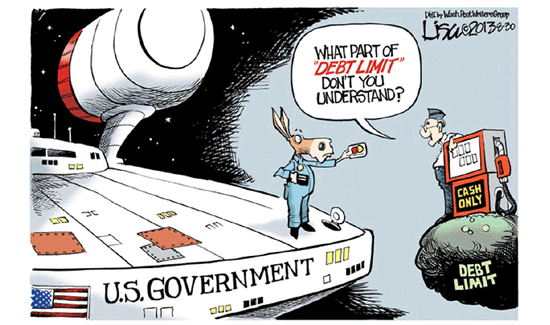
4. Today's raw market data ...
A quick new-week update:
| as at 11:10am |
Today 9:00 am |
Friday |
Four weeks ago |
One year ago |
| NZ$1 = US$ | 0.8356 | 0.8383 | 0.7802 | 0.8283 |
| NZ$1 = AU$ | 0.8902 | 0.8883 | 0.8642 | 0.7932 |
| TWI | 77.94 | 78.02 | 73.63 | 73.45 |
| Gold, US$/oz | 1,349 | 1,365 | 1,416 | 1,763 |
| Dow | 15,467 | 15,629 | 14,955 | 13,565 |
| Copper, US$/tonne | 7,295 | 7,302 | 7,301 | 8,156 |
| Volatility Index | 13.16 | 13.59 | 14.99 | 14.15 |
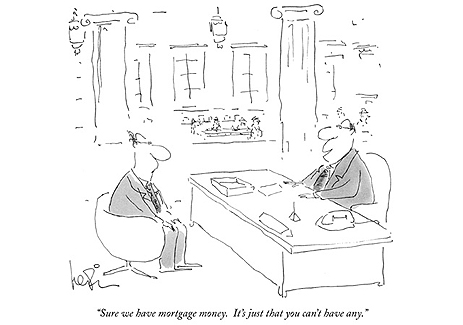
5. Rude words? Maybe not
Ask David Andolfatto (who is an economist at the St Louis Fed) 'what is a bank?' and he will say "an agency that transforms illiquid assets into liquid payment instruments".
He's been thinking about the new four-letter word in banking, 'rehypothecation'. It's the new version of 'fractional reserve banking' which gets some people upset, especially those who don't actually understand banking. Creating money is what banks do; regulators basically work to keep it properly controlled.
Rehypothecation occurs when a creditor uses the borrower's pledged asset for his own use (e.g., selling it, or using it as collateral for his own borrowing). Rehypothecation plays a big role in the so-called shadow banking sector. The practice is often likened to fractional-reserve banking and is widely blamed for the failure of Lehman Brothers and MF Global; see here.
But just like fractional reserve banking, rehypothecation has its upside.
At each stage in this process, rights over the collateral are passed on to the last creditor in the chain. All previous debts are rendered unsecured; which is to say, the debts are supported by the debtors' desire to maintain their reputational capital. Creditors become more trusting. Is this a bad thing?
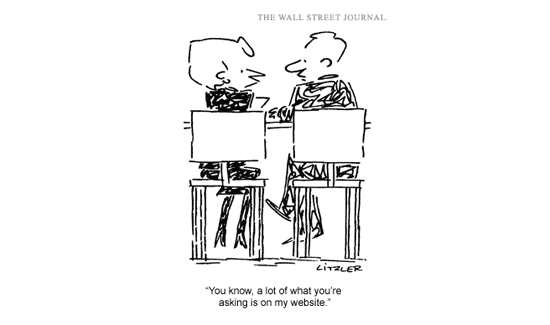
6. deja Vu
Pinch me. It's 2013, I'm pretty certain. But some bank regulators are worrying again about bank loan provisions and accounting standards.
Here is the US Comptroller of the Currency, Thomas Curry in a speech last week.
Of course, it is to be expected that banks will release reserves accumulated during difficult times as underwriting standards, loan performance, and the economic climate improve. Given the improvement that has taken place since the financial crisis, releases are certainly warranted. And, to the extent that higher profits enable banks to generate additional capital, they contribute to safety and soundness.
But for some banks, the ease with which the allowance could be repurposed as earnings has proved habit-forming.
Last year we noted a growing disconnect between the pace and magnitude of allowance releases and underlying credit trends.
Of particular concern to us was that significant reserve releases were continuing despite reports from our examiners that credit risk, as I mentioned earlier, was once again on the rise, with relaxed underwriting standards, pricing for risk, and more risk layering. It seemed to us a singularly bad time for banks to be scrimping on their allowances against their loan losses.
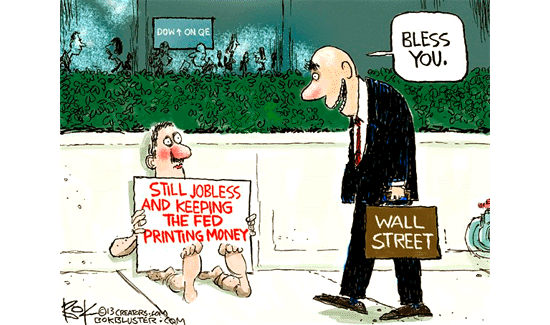
7. The New Keynesian liquidity trap
Paul Krugman's Keynesianism get up John Cochrane's nose. So he wrote a paper about why Krugman is wrong; its what academics do. Still, these tiffs can be interesting. This one has some relevance to New Zealand. Our growth is impressing many, but is it just because of the Christchurch quake rebuild? Cochrane has his doubt about its 'goodness'.
I just finished a draft of an academic article, "The New-Keynesian Liquidity Trap" that might be of interest to blog readers, especially those of you who follow the stimulus wars.
New-Keynesian models produce some stunning predictions of what happens in a "liquidity trap" when interest rates are stuck at zero. They predict a deep recession. They predict that promises work: "forward guidance," and commitments to keep interest rates low for long periods, with no current action, stimulate the current level of consumption. Fully-expected future inflation is a good thing. Growth is bad. Deliberate destruction of output, capital, and productivity raise GDP. Throw away the bulldozers, let them use shovels. Or, better, spoons. Hurricanes are good. Government spending, even if financed by current taxation, and even if completely wasted, of the digging ditches and filling them up type, can have huge output multipliers.
Even more puzzling, new-Keynesian models predict that all of this gets worse as prices become more flexible. Thus, although price stickiness is the central friction keeping the economy from achieving its optimal output, policies that reduce price stickiness would make matters worse.
In short, every law of economics seems to change sign at the zero bound. If gravity itself changed sign and we all started floating away, it would be no less surprising.
And of course, if you read the New York Times, people like me who have any doubts about all this are morons, evil, corrupt, and paid off by some vast right-wing conspiracy to transfer wealth from the poor to the secret conspiracy of hedge fund billionaires.
So I spent some time looking at all this.
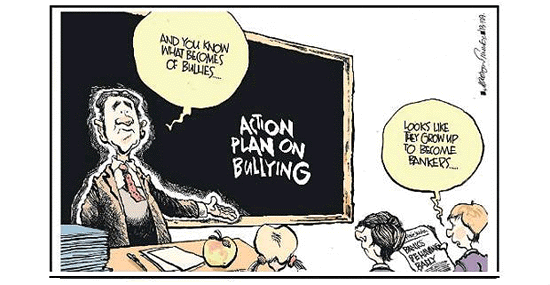
8. Chinese milk powder strategy
China may be moving to 'support' a 'national team' approach to developing their own high-end milk powder capacity. They have been shaken by consumer demand for foreign infant formula. The subsequent prosecution of of foreign supplier operating in China may have been a reaction, but those firms do appear to have broken Chinese laws.
Now, recent reports have emerged in the Beijing Times that the Consumer Ministry is looking for a 'national team' or five companies to develop and launch a high-end milk powder brand. Ministry officials have denied that, but confirmed that the Chinese Dairy Industry Association will lead a similar project. Boosting consumer confidence in Chinese milk brands is a key objective.
To gain the techniques and commercial processes, it is likely New Zealand will become a new 'best friend'.
Please email us if you have local knowledge of how this is developing.
The following excerpt is loosely (and unreliably?) translated (via Google Translate) reports from Beijing Times, the China Broadcasting network, and Caijing.com:
Insiders said that local brands have to compete with foreign milk powder, prices, etc. The activities of the foreign milk monopoly on the domestic dairy industry has caused great impact on consumers' trust of local brands. It is not enough to continue as things are, so the state needs to establish and support local brands.
Dairy industry veteran Song Liang has identified four existing producers and one up-and-coming distribution campany to lead these efforts from the top ten local dairy companies.
However, he warns that it may be a 'cruel reality' that without a national effort, local companies may be consigned to occupy a second tier market position.
This morning there has been a brief Reuters report on the same issue.
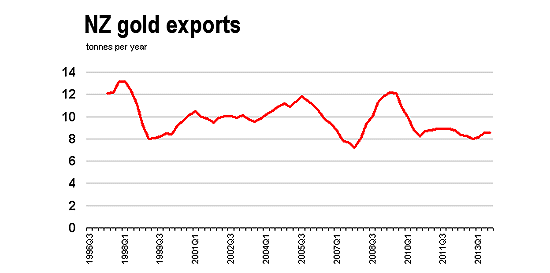
9. News and entertainment
You obviously spend some time online. But how do you compare with other Kiwis? and how do we compare with Aussies in our media habits?
Is our excess radio just Aucklanders stuck in traffic? (or farmers glued to radioSport?) This data is from Roy Morgan Research as part of their Digital Universe Report.
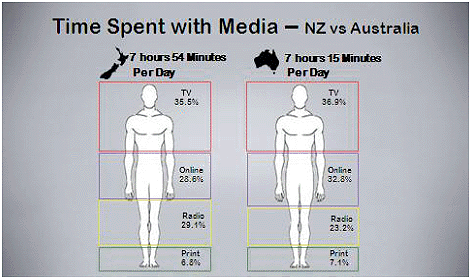
10. Today's quote
"Car sickness is the feeling you get when the monthly payment is due." unknown
26 Comments
#9 for myself, TV averages about 10 minutes a day, radio about 2 hours a day (mostly Morning Report and Checkpoint), print about 2 minutes, while the internet surrounds me and binds the galaxy together (so significantly more than the rest put together), probably about the same overall average total. That said, a lot of what I read online some people may be reading in print or getting by watching the TV news.
Nat Rad probably accounts for that difference all by itself. We are lucky to have such a seriously good public radio station (lots better than the ABC's National Radio).
No1.
When will the CCP fail?.
Maybe a bit like when National and Labour and Greens and Maori Party fail.
When the peasants realise that like our own plutocrats they have been scammed, over worked and under paid, unlike their rulers who have become millionaires/billionaires, trading on inside knowledge and kick-backs, manipulating the economies and the Plutocrats business, and skimming off the top.
Ask a Yank, ask anyone with half a brain.
All change, no change.
reserve bank proposes to catagorise mortgages to property investors with more than 5 properties as 'bussiness loans' instead of residential mortgage.
This will mean banks will need to hold a lot more capital for these loans (they will become as unattractive to banks as any other business lending).
Rates for these loans will be very high.
http://www.rbnz.govt.nz/news/2013/5463875.html
Worth a separate article to those property obsessed at interest.co.nz I would have thought?
Yes, indeed, that would be a massive game-changer
That'd frighten the horses, the crocodile in the swamp, a pandora's box, a cat among the pigeons
That's equivalent to the changes being implemented by Trade-Me
Remember Kimy with 12 investment properties, pleading for lower interest rates? .. he'd be a goner
Unless its changed in the UK (it was 20 years ago) the only house you could get a residential mortgage rate on was the one you lived in. Otherwise you paid a commercial loan rate which was double. You were not even allowed to take in a lodger, though that did change is 1992/3 when ppl were suffering and defaulting (rates were 19% or something), then the banks "allowed" lodgers "officially" anyway.
regards
In the UK, you need a buy-to-let loan to buy a rental property. These tend to require higher deposits (typically 20%+) and have an interest rate premium of about 1% over the normal residential rate.
When I moved to NZ, I rented my previous UK home. I had to get permission from the bank (otherwise insurance would be invalidated). They allowed two years at the residential rate then applied a 1.5% premium. So I rented it for two years then sold it.
That would indeed change things. Wonder if Gareth Morgan's had a word in their ear? lol.
Nah .. reckon Wheelman Wheeler is a bit of an activist .. wheeler-and-dealer .. Morgan was only ever low-level minion at the RBNZ .. he's persona-non-grata around there now
Simon the real irony is that the Government, RBNZ and the Banks all need that business lending as without some people prepared to get off their proverbials and take on the challenge there would not be jobs for everyone else and very few would actually be in a position to take on a residential mortgage if it wasn't for the business community.
This is a back door entry to putting up interest rates on a few lifestylers and others who are in small business. If it is deemed to be a business loan instead of a residential mortgage then this business loan interest could be deemed to be tax deductable along with rates, insurances and other costs associated with it.
The RBNZ's proposal is interesting and will have far wider implications than LVR limits.
I am not so sure the RBNZ has a very good handle on how business works and the structures that are used in business.
#7 strawman / shoot the messenger job maybe....lets see for 5 or more years the freshwater / dominant school of economics has been proven wrong, time and time again....so now its lets throw some sh*** aboout and hopefully some of it will stick on the ppl who seems to have been pretty right. Rather than oh maybe what we thought we knew or wanted to believe as it suite dour political outlook was actually wrong....
Interesting indeed.....
regards
#7... U are a smarter man than me Steven... ( or were ur remarks just flippant )
Did u manage to read that article to come to that conclusion..??
My eyes glazed over .... The maths side of economics is beyond me... I did not get past the 1st page
Hi, no not flippant
"Flippant definition, frivolously disrespectful, shallow, or lacking in seriousness; characterized by levity: "
serious stuff....the impact of this seemingly politically driven agenda will hurt ppl.
and no not smart enough......this is high level prof stuff.
The freshwater school has a rep for high level maths and models that are considered meaningless and even in-accurate in the real world...and are at odds with the saltwater school. I think the comment was the freshwater school have the ability to take a simple logical model to an illogical extreme using fancy maths and loaded assumptions that make a mockery of the output/real life.
So lets say he's blinded both of us. Or is attempting to do so by constructing a complex model that "proves" his position but really bears no or to poor a relationship to the real world and real world events to be the truth.
I think I said it earlier, theory is fine until it meets practice....
I'll wait with interest to read Paul Krugman's comments / reply to this. Im not up to his level to do so....
What I do see is how the real world events are unfolding....and if we take the predictions of real world events as a guide Steve Keen amd Paul Krugman and scoring very well IMHO, almost a whitewash.
regards
Roelof,
The formulaic proof part of the paper was unreadable to most I suspect- and certainly to me. The summary at the end was nearly understandable. So we can take out what we want to.
I suspect the author is accusing Krugman of advocating things that Krugman does not in fact advocate. Digging holes with spoons and filling them up again for example. Nor even wasteful government expenditure. There are plenty of useful infrastructure projects in the US that could be undertaken as I understand it. Their roads and bridges have a reputation for being in poor repair for example. Similarly the paper (or at least the bits I understood) seems silent on taking measures to ensure lower paid workers have more disposable income- either through tax breaks or minimum wages. Krugman I suspect does advocate such measures, both for ethical, and also economic stimulus reasons.
The bigger debate on zero interest rates, fiscal multipliers, capital flow (or money creation and direction) management seems far from settled; and I for one am not convinced that in an enclosed economy that hurting savers to reward borrowers does make the economy work better all else being equal. In terms of cashflow interest rates are neutral. Low rates will increase demand but reduce supply.
New Zealand of course is a very open economy (far more so than the US, which is significantly more self contained), so what should the settings be for us? We seem to have a flood of capital coming in; whether chasing interest rates or just relative quality assets, seems unclear. The fiscal mulitplier in a small open economy has been proven to be zero. The best answer seems to me to be to balance or manage capital coming in and out at whatever interest rates work optimally for the economy. Something like the Swiss.
#7 That is some minutes of my life I will never get back. The formulaic part is arguing if you take what Cochrane describes as a new Keynesian model of the economy, and set certain of the factors making up that model to be infinite, then this will affect the relationship with other factors making up the economy. I personally have problems with treating any econmic model as having factors that can go to infinite.
I think this was best summed up by the Saturday Morning Breakfast Cereal comic of a few days ago,
http://www.smbc-comics.com/?id=3117#comic
Apt cartoon.
regards
Stephen L...Low rates will increase demand but reduce supply.
Can u eleaborate..??
The best answer seems to me to be to balance or manage capital coming in and out at whatever interest rates work optimally for the economy. Something like the Swiss.
Do u think that is possible.... Reserve bank can't target inflation AND respond to Global interest rates..... They would struggle to make well timed decisions..???
http://www.youtube.com/watch?v=PHe0bXAIuk0&feature=youtu.be
Ray Dalio has just made a video... He is a very practical economist..
In terms of basic , ist principles.... it is not that hard to understand... AND Ray Dalio has proven his theories in the real world... (That sets him apart from any academic economist.)
Roelof,
Simplistically it seems to me that near zero interest rates discourage savers, so reducing the supply of money. Low rates clearly encourage borrowing. Do low or high rates affect the velocity of money? Am not sure. Menawhile interest saved by borrowers, will equal interest lost by savers in a zero interest sceanrio. So there is no more money around, it is just in different hands. What low interest rates will clearly do is raise the nominal value of assets, as at say 5%, an asset would be worth roughly 20 times it's "rent"; but at 10% it would be worth only ten times the rent.
Growing an economy by artificially raisng asset values in this way, with the hope of some trickle effect into spending, does not seem great policy. At least not on its own.
In terms of matching the Swiss (who again headed the world competitiveness list this year), I am persuaded by their determination to keep their currency competitive. (and by their centuries of being very savvy financially). That is despite a massive current account surplus. The exact process of keeping the currency competitive could be debated. I have views, but best not to write an essay on that; and the exact process I might advocate may not be the best one. The key is to have a process. And to let the markets know you will use it.
Stephen,
The nature of our Monetary system is that credit creation is determined by the demand for credit.
Watch that video link .... Ray Dalio is very good. credit creation does not require a "saver" ..per se.
Credit spends like money... and Banks only need savers money, or their own capital, to meet their obligations in regards to the payments system and reserve Bank prudential policy.
Over time near zero rates actually Destroys savers... In my view it is a destruction of Capitalism in its truest sense.. ie. Deferred consumption and Capital Formation .
I kinda think velocity of money has more to do with the "mood" or "season" an economy is in...Much like an individual...
In my view ... it is all about credit growth... Just as Ray Dalio says... one mans spending is another Mans income.. ( If I borrow $600,000 to buy a house ... some of that money will end up as someones income).
So... I'd qualify what u say... by saying Growing an economy thru credit growth, which leads to asset price inflation, creates a cycle ...which needs to be allowed to play out.
And... because it is not allowed to be played out there is a generational debt cycle...
I don't know much about switzerland.... But I've heard that they are gorwing their money supply aggressively to keep a low exchange rate... Maybe they will end up with severe asset price inflation????
I think I'm old school... I think exchange rates should move to balance trade (balance of payments... )
To have chronic current acct deficits is not good...... and to have chronic acct surpluses is also not good.... in a Global sense.
To have a chronic current acct deficit and a strong currency is not good.
To have a chronic current exchange surplus and have a weak currency is not good.
Global trade was supposed to make everyone better off..
The Global Monetary system is flawed and broken...and only benefits a few Nations... in my view.
Roelof,
Agreed on nearly all points, even the money creation, although I understand there is some eventual balancing that banks do, having created the money, where they need a reasonable proportion of that back before creating more. So they need some incentive to savers or foreign investors to bring it back. And the interest income and expense should balance out, save any bank margin difference.
Swtizerland is aggressively printing and buying foreign assets with the printed money, is my understanding. That not only keeps their exchange rate down, but gives them income from foreign assets. The printing and investing roughly equals foreign money coming in. It might be better in NZ's case to take steps to slow the money comning in in the first place. We are doing the opposite. No printing, and selling assets, so arguably paying twice- in interest, and in the future rent on the assets.
In the meantime low interest rates cause asset bubbles and hurt savers (although many savers are also investors in the bubble assets, so no need for too many tissues), but high rates cause capital flows in as we've noted. So we need some other tools.
(M.V)+i = P.Q models your velocity in regard to interest if you run some scenarios with it (i = interest). You will find over time that because interest payments compound to comsume a greater percentage of the money supply then both velocity and interest trend down.
#1. The fall of the CCP is a widely exgerated expectation of all western liberals....akin to their ultimate wet dream....Even today 80% of chinese support the CCP...the other 20% are Tibetians and Western educated "liberals"....
China always look to their neighbour in their search for Democracy and they find Pakistan.....
" A thousand years of authority is worth one day of anarchy" goes an old chinese saying....
western liberals or western right wingers?
I'd certianly say the rabid right's "wish" is to see the chinese system fail and come over to "democracy" or the US's version of cronyism....
regards
Lol. China won't fail in a hurry because it is decentralised, although it probably doesn't seem that way on the face of it. Although the CCP might not continue to represent China.
"At each stage in this process, rights over the collateral are passed on to the last creditor in the chain. All previous debts are rendered unsecured; which is to say, the debts are supported by the debtors' desire to maintain their reputational capital. Creditors become more trusting. Is this a bad thing?"
Has this guy been living down a hole since the collapse of the shadow banking industry has wrecked its havoc around the world? The credit crunch which just about brought down the global economy was precisely because banks and investors didn't trust one another. Mortgagees in America were walking away from their homes, when they went into negative equity, mortgage brokers had fraudulently provided credit to people they knew couldn't pay, investment bankers had packaged bad debts with good securities to mask the true worth of the securities, credit rating agencies accepted kickbacks and turned a blind eye when rating both these securities and public debts, and regulators only enabled all these shady goings on out of political expediency and prosecuted whilstle blowers to prevent the public from knowing what was going on. And this guys says that rehypothecation'. makes creditors more trusting? Is he mad?
The credit crunch which just about brought down the global economy was precisely because banks and investors didn't trust one another
In the US the Fed created permanent reserves which banks placed on public display so they could trust each other's checks during daily interbank settlement sequences.

We welcome your comments below. If you are not already registered, please register to comment
Remember we welcome robust, respectful and insightful debate. We don't welcome abusive or defamatory comments and will de-register those repeatedly making such comments. Our current comment policy is here.